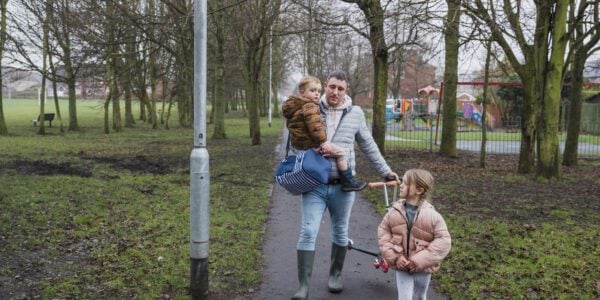
04/06/13
3 min read
Two thirds (64%) of single parents on out-of-work benefits do not receive any child maintenance from their child’s other parent, although the proportion that do increased from one quarter (24%) to one third (36%) between 2007 and 2012, according to research published today by Gingerbread, NatCen and BPSR and funded by the Nuffield Foundation.
The research also shows that child maintenance, where it is paid, plays a key role in lifting children out of poverty; but that some parents are unable to make private arrangements and will continue to depend on the Child Support Agency (CSA), despite government plans to charge them for using the statutory service in future.
Maintenance lifts more children out of poverty
Prior to 2008, single parents on benefit who received more than £10 a week in maintenance were subject to a pound for pound deduction in their benefits. This policy was abolished in 2010, and in 2012 the average amount received was £23 a week. For one in five (19%) parents on benefit who receive maintenance, this income has lifted them and their children out of poverty.
However, the research also shows that one in four (25%) of those who do receive payments do not receive the full amount agreed on a regular basis.
The Child Support Agency (CSA) is the only option for some parents
The proportion of single parents on benefit who arrange payments privately has increased since the requirement to use the Child Support Agency (CSA) was lifted in 2008 (from 4% to 20%). However, over a third (37%) of single parents on benefit still use the CSA to arrange payments. Just under half (43%) of all single parents on benefit have no arrangement in place.
The research shows that private arrangements for paying maintenance are difficult to sustain over time: although four in ten (40 per cent) single parents on benefit had or had tried to have a private arrangement at some point, half had since moved to having a CSA arrangement or no arrangement at all.
The researchers recommend that these findings are considered by the government in its current redesign of the child maintenance system. The government’s aim is to support greater numbers of separated parents to make their own private maintenance arrangements, and plans include the introduction of charging for parents who use the statutory new Child Maintenance Service (which will replace the CSA) to collect their maintenance.
The study compares data collected from a 2012 telephone survey of 760 single parents on benefits and 40 in depth interviews with data from the 2007 Department for Work and Pensions (DWP) Survey of Relationship Breakdown.
Teresa Williams, Director of Social Research and Policy at the Nuffield Foundation said:
“These findings show the difference child maintenance can make in lifting families out of poverty. This is particularly important, because family income plays a significant and independent role in children’s outcomes. While the increase in the number of children receiving financial support from their non-resident parent is a positive development, we need to focus on how this can be extended to the majority, who currently receive nothing.”
Fiona Weir, Chief Executive of Gingerbread said:
“These lessons could not come at a more important time. The government is soon to start shutting down the CSA, replacing it with a system that charges single parents to have their maintenance collected when the other parent won’t pay. Introducing charges where private agreements haven’t worked risks making some of the most vulnerable parents even poorer – either because they have no choice but to pay to use the new statutory system, or because they give up on child maintenance altogether.”
“At a time when private maintenance agreements are being sold as the best solution for separated parents, this study shows that – for a significant group of single parents – they are simply not feasible.”
Notes
1. The report, Kids Aren’t Free: the child maintenance arrangements of single parents on benefit in 2012 by Caroline Bryson, Amy Skipp, Janet Allbeson, Eloise Poole, Eleanor Ireland and Vicky Marsh is published by Gingerbread.
2. There are around two million single parent families in the UK raising over three million children. Around 750,000 of these single parents are receiving out of work benefits.




















































